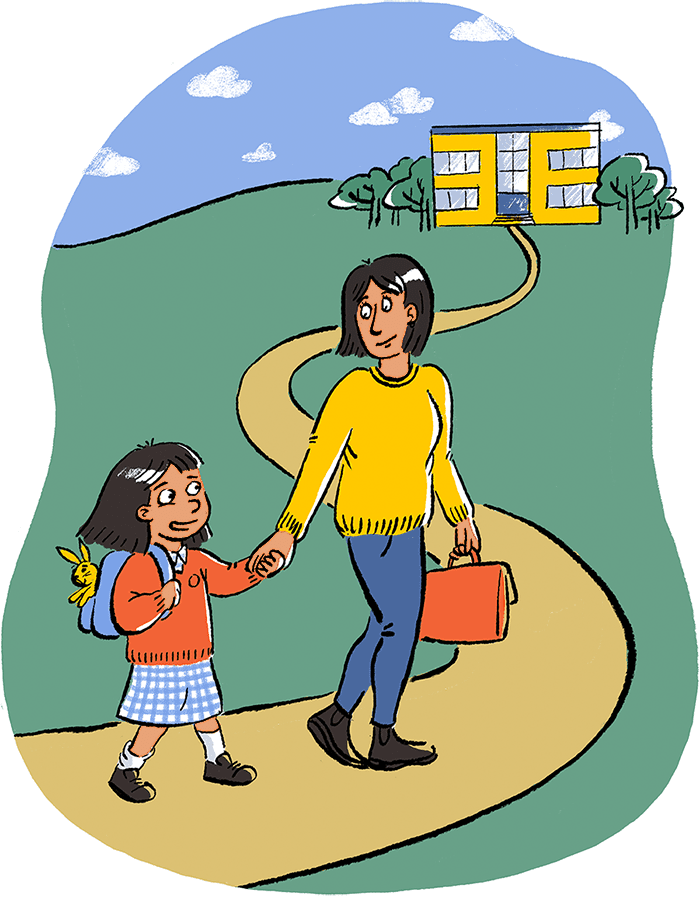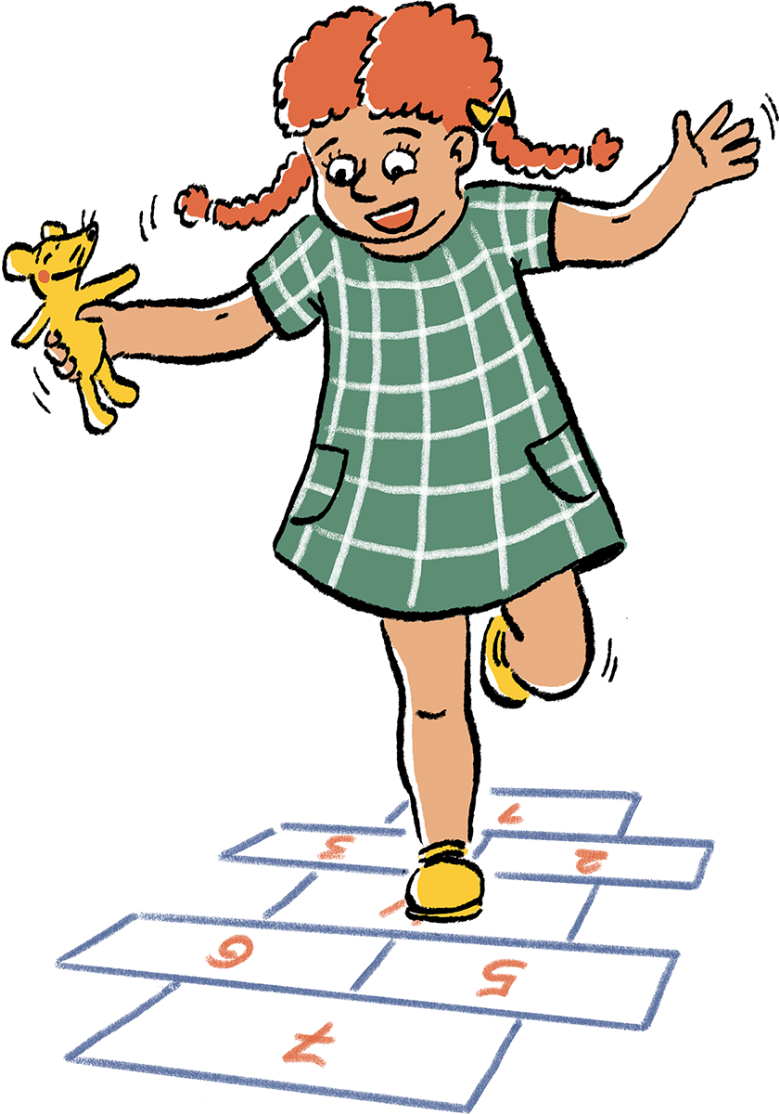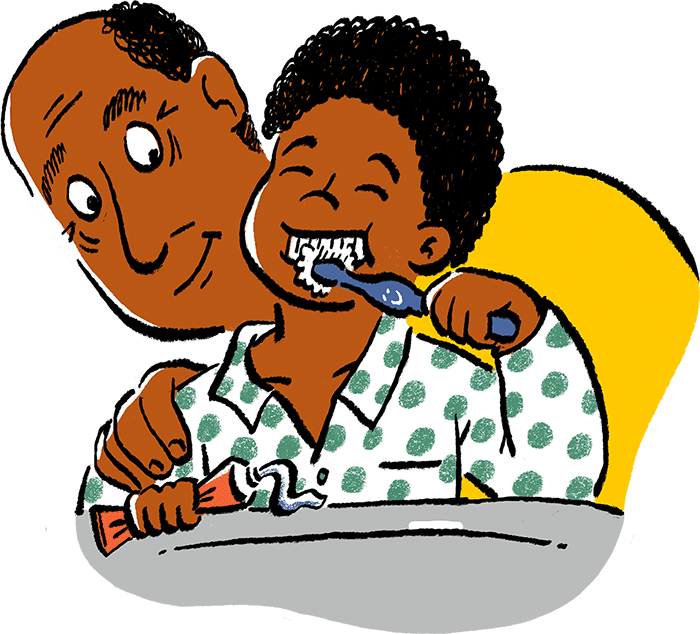Starting Reception
|
Your child's journey to school starts at home. We understand that all children develop at their own pace, and that we’re all learning from birth. When it’s time to start school, some children will need more help than others. There are key skills* that schools expect children to learn before their first day at school. Practising these will make your child’s journey to Reception as positive as possible. If your child is already at nursery, in pre-school, or with a childminder, those professionals will work with you and your child to help get them ready. There’s also lots you can do at home to build your child’s confidence and independence, helping them feel emotionally and practically prepared to start school. *We are calling this document the ‘Starting Reception’ definition. Some people/organisations refer to this as ‘school readiness’. |
 |
How can I help my child get ready?
|
 |
What if my child has additional needs?
- If your child needs additional support to settle into Reception, make sure you share as much information as possible with their new teacher. They can work with you to find strategies to support your child.
- Summer born children, or those speaking English as an additional language (EAL) may need more support.
- If you know or suspect your child has suspected or confirmed special educational needs (SEND), developmental differences or delays, some of these skills may not be achievable for them at this point.
- Early support makes a big difference – ask your child's nursery, school, health visitor, local children's centre or family hub for help.
Who can I speak to for help?All children need help from their trusted adults to feel confident and excited about starting Reception.
|
 |
The definition: skills to practise before starting Reception
New skills take time to learn. Practising at home will help your child move into school more easily and with confidence.
Growing independenceTaking care of themselves
Play, creativity and curiosity
|
 |
Click here to find links to more information and guidance
Growing independence
- Check out Parentkind’s online advice hub and magazine for parents ‘Be School Ready’
- Enjoy Family Corner’s 5 tips to help your child get ready for Reception
- Guidance for parents and practitioners - PACEY
- Download the free EasyPeasy mobile app for tips and activities to support everyday parenting moments
Taking care of themselves
- How can you make separating easier? - Family Corner
- Getting dressed and ready for the day - backward chaining information sheet - NHS
- Getting ready for the Day - BBC
Toilet training
- The Institute of Health Visiting has advice and tips on toilet training
- Simple and supportive toilet training advice - ERIC
- Potty training and bedwetting - NHS
- Pants4School - Down Syndrome UK
Playing, creativity and curiosity
- 5 steps for brain building through serve and return - Center on the Developing Child at Harvard University
- How to follow a child’s interest in play - National Literacy Trust
- How to role play with your child - Pretend role play - BBC
- How to role play with your child - Playing pretend animals - BBC
- Fire up their imagination with drawing - BBC
- What is mark-making and why is it important for learning? - PACEY
- Sharing story books on World Book Day - BBC
- Nature activities for children - BBC
- Learning and having fun on the bus - BBC
- Play a game of 'What's that sound?' - BBC
At school your child will be meeting lots of new people and will make new friendships. Some things to help them get ready include:
Building relationships and communicatingBeing with others
Communication and language
Listening and engaging
|
 |
Click here to find links to more information and guidance
Building relationships and communicating
- The Royal Foundation Centre for Early Childhood’s Shaping Us Framework outlines how these skills develop in early childhood
- Top tips for enjoying stories together and book recommendations for starting school - Book Trust
Being with others
- Learn how to support your child to make friends - Family Corner
- Understand your child's social development - Words for Life
- Practice sharing with toys - BBC
Communication and language
- You are your child’s first teacher – help them learn how to write their name - Words for Life
- Explore a range of approaches to language learning and development from NHS Start for Life
- Build your child’s imagination and language by making up stories together - BBC
- Child's Progress checker - Speech & Language UK
Listening and engaging
Physical developmentGetting moving for at least three hours a day
|
 |
Click here to find links to more information and guidance
Healthy routines
|
 |
Click here to find links to more information and guidance
Understand what 'healthy' levels of screen time are, by age
Get insights on internet safety, how screen use impacts young children and recommended screen time
And for those with younger children, the NCT covers advice for babies and toddlers too:
Help children build a strong relationship with food and make the right choices from the start
- Nutrition guidance - Department for Education
- Healthier families - NHS
- Five tips for helping your kids to eat healthily all year round - BBC
- Eating Well - First Steps Nutrition Trust
- Factsheet for healthy children's diets - Association of UK Dieticians
Brushing teeth
Sleep guidance
What should I do if I have concerns about my child's development?
- If you're worried about your child's progress, talk to your childminder/nursery/pre-school team, health visitor, local children's centre or Family Hub.
- â??If your child has developmental delays or SEND (suspected or confirmed), speak to their childminder/nursery/pre-school team well before they start Reception.
- You can work with your child's early years setting to help your child with self-care, managing emotions, social skills, and communication in a way that suits their stage of development.
- â??You might want to share details about their development, needs, what motivates them, what might trigger difficulties, how they learn best, and what strategies work well.
- Make sure you share important information with everyone supporting your child, including their new Reception teacher.
Resources for families with additional needs:
There are many organisations that can support you with information and strategies to prepare you, your child and their educational setting, ensuring a smooth transition and setting them up for future success.
These include:
Information provided by Starting Reception








